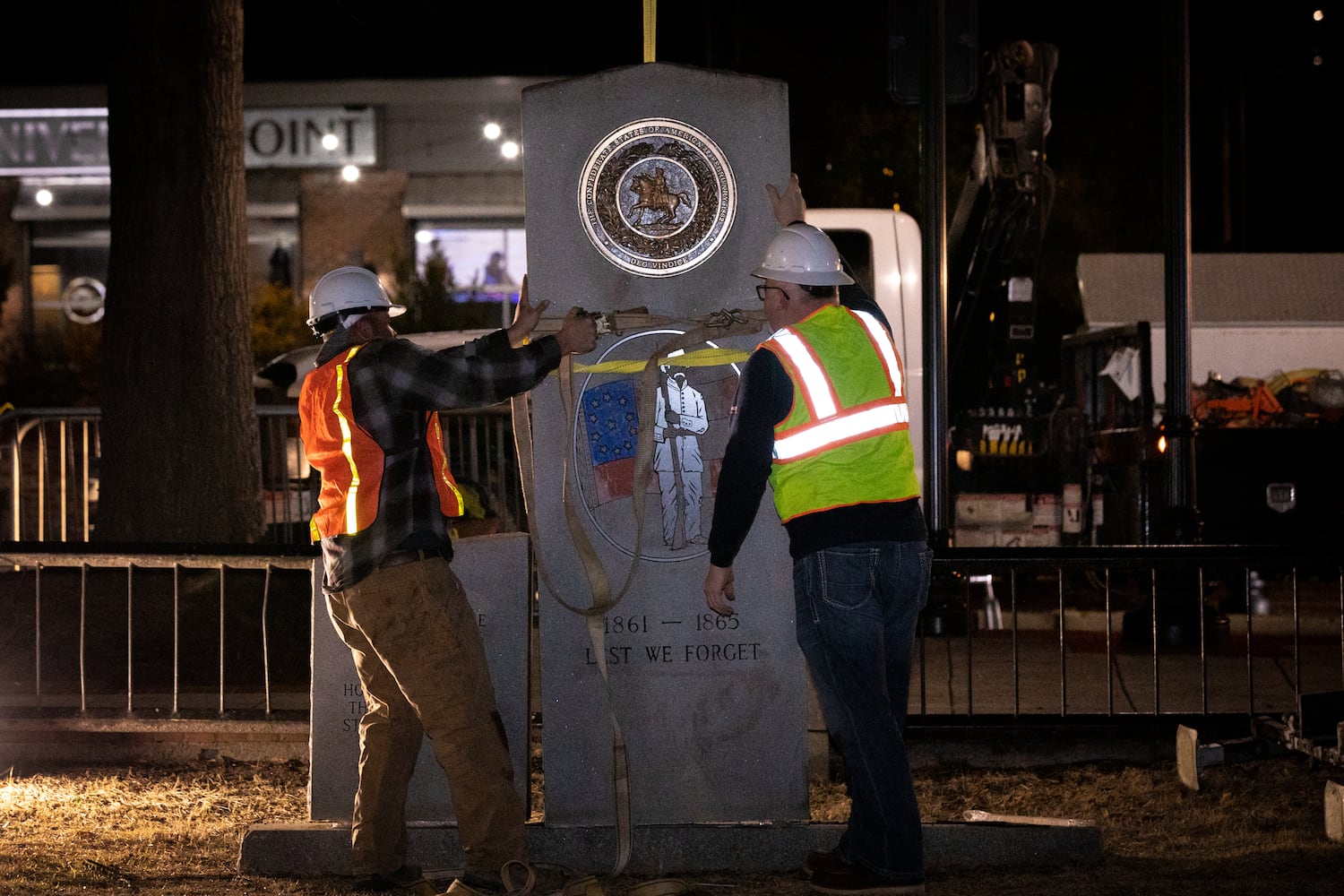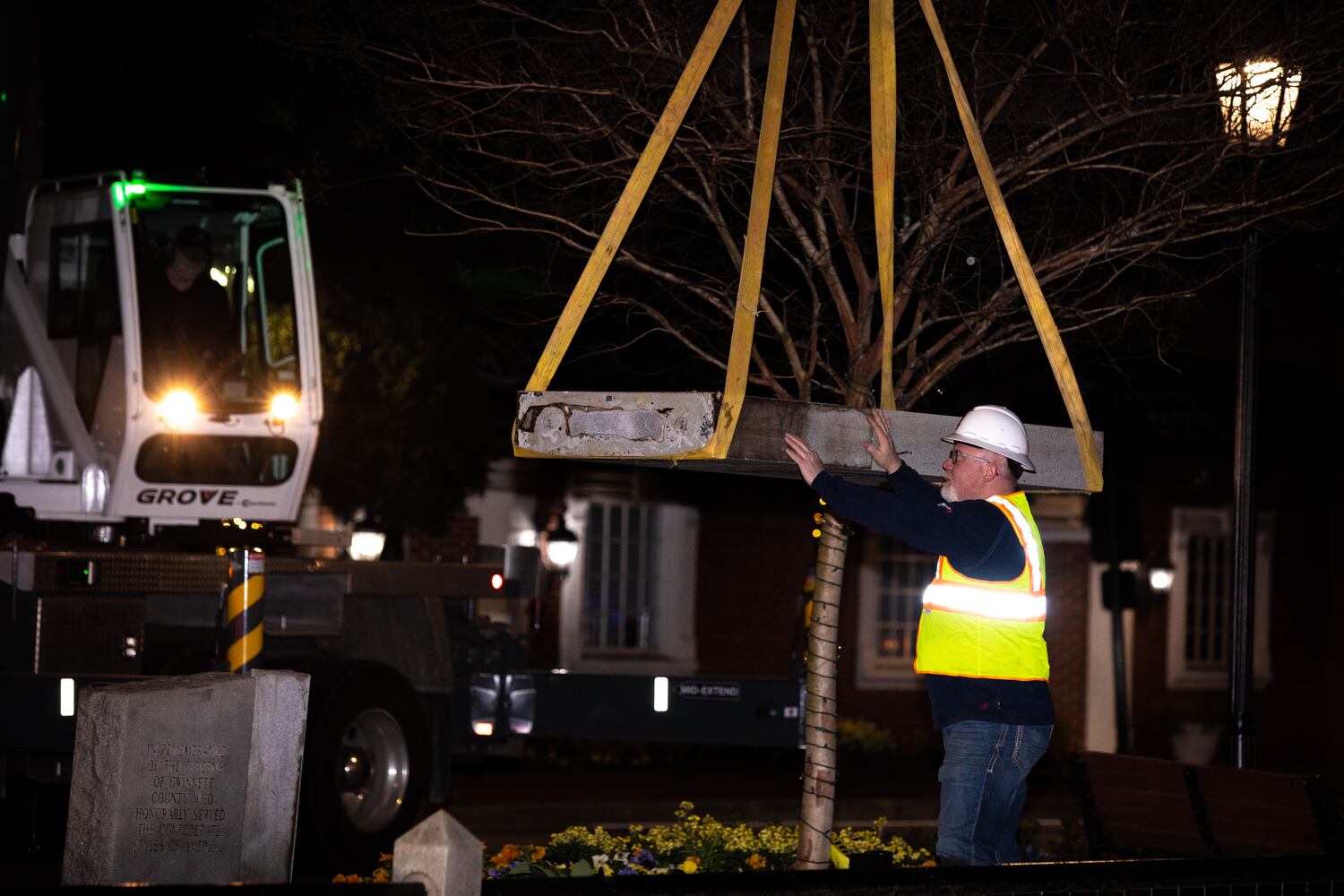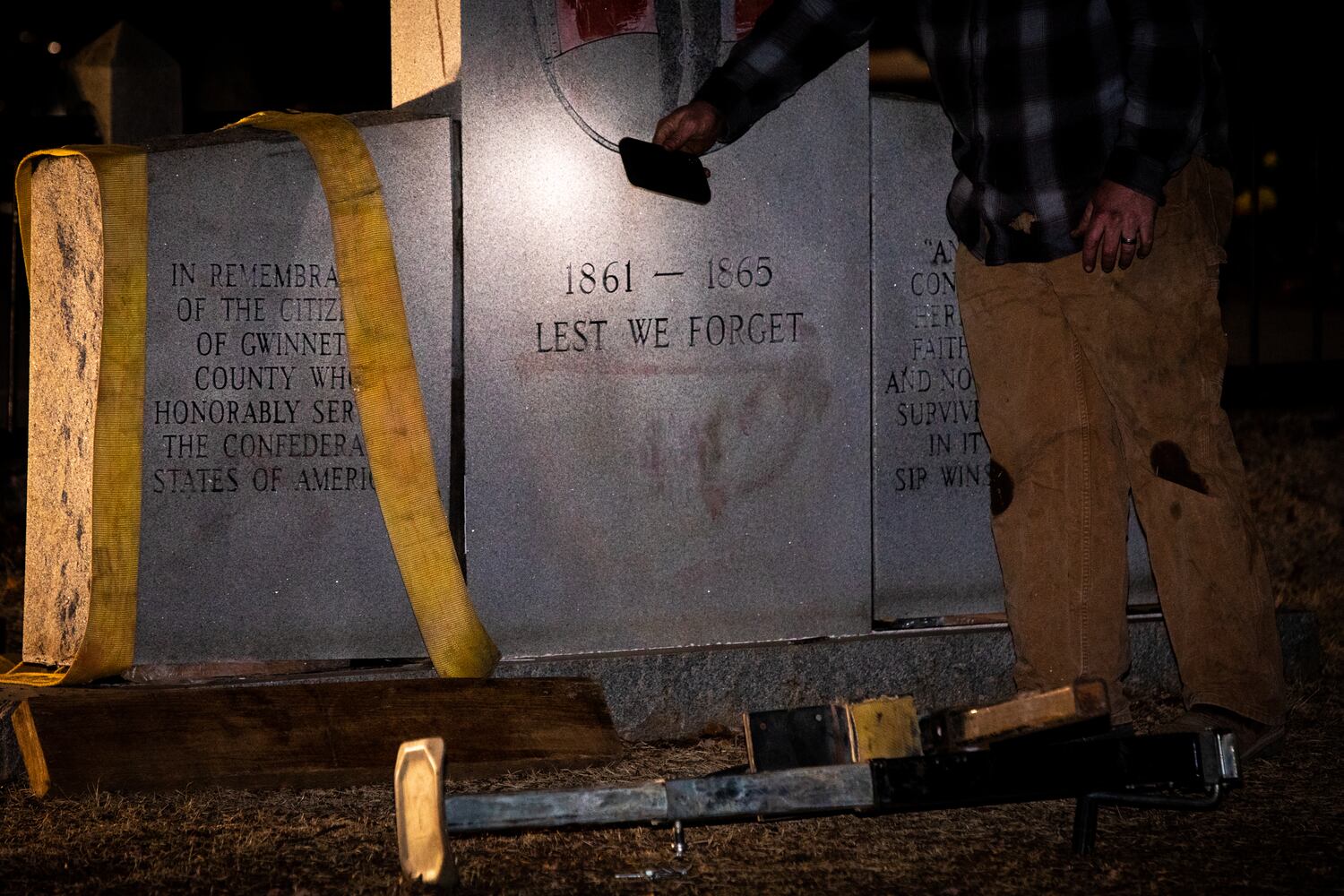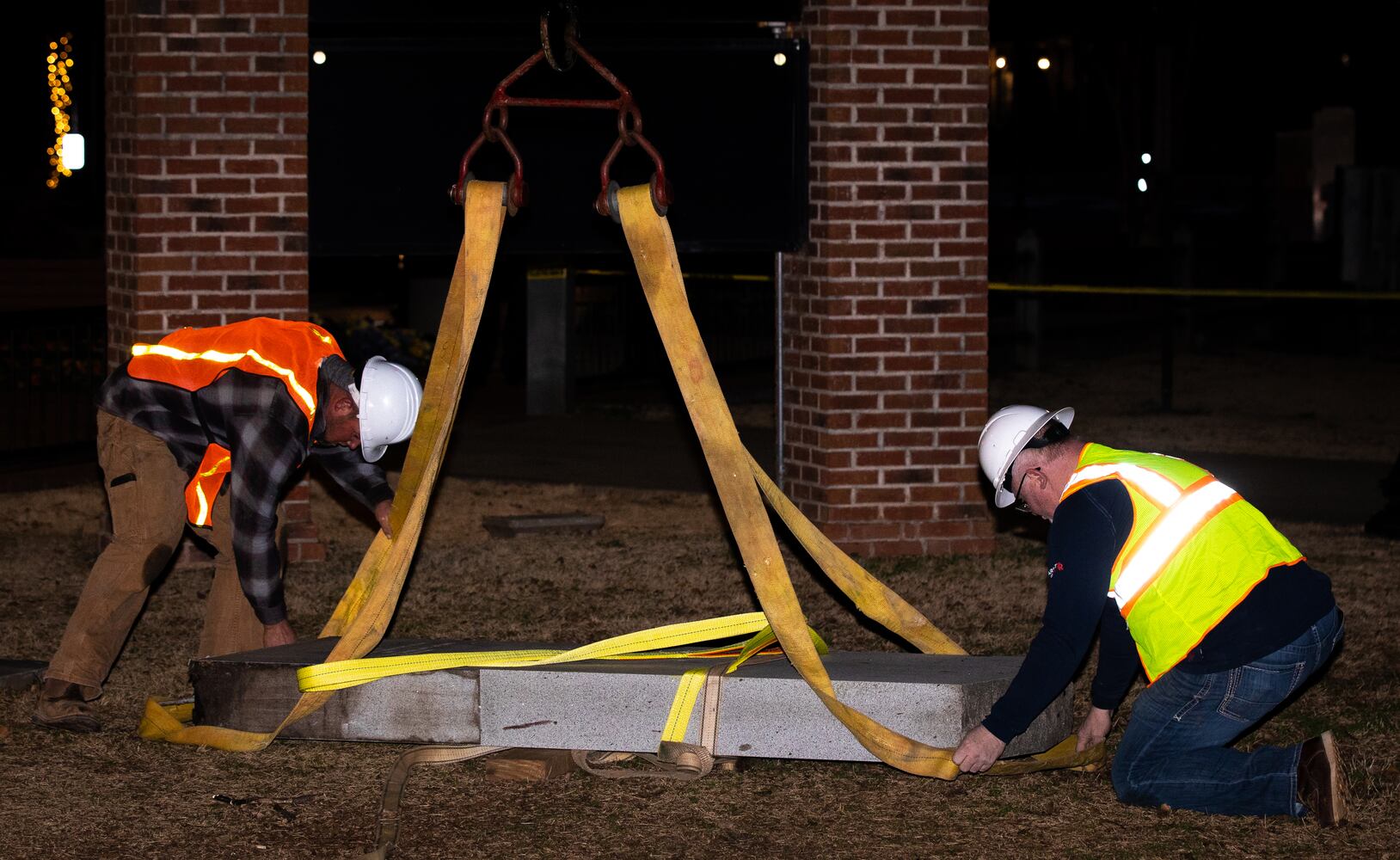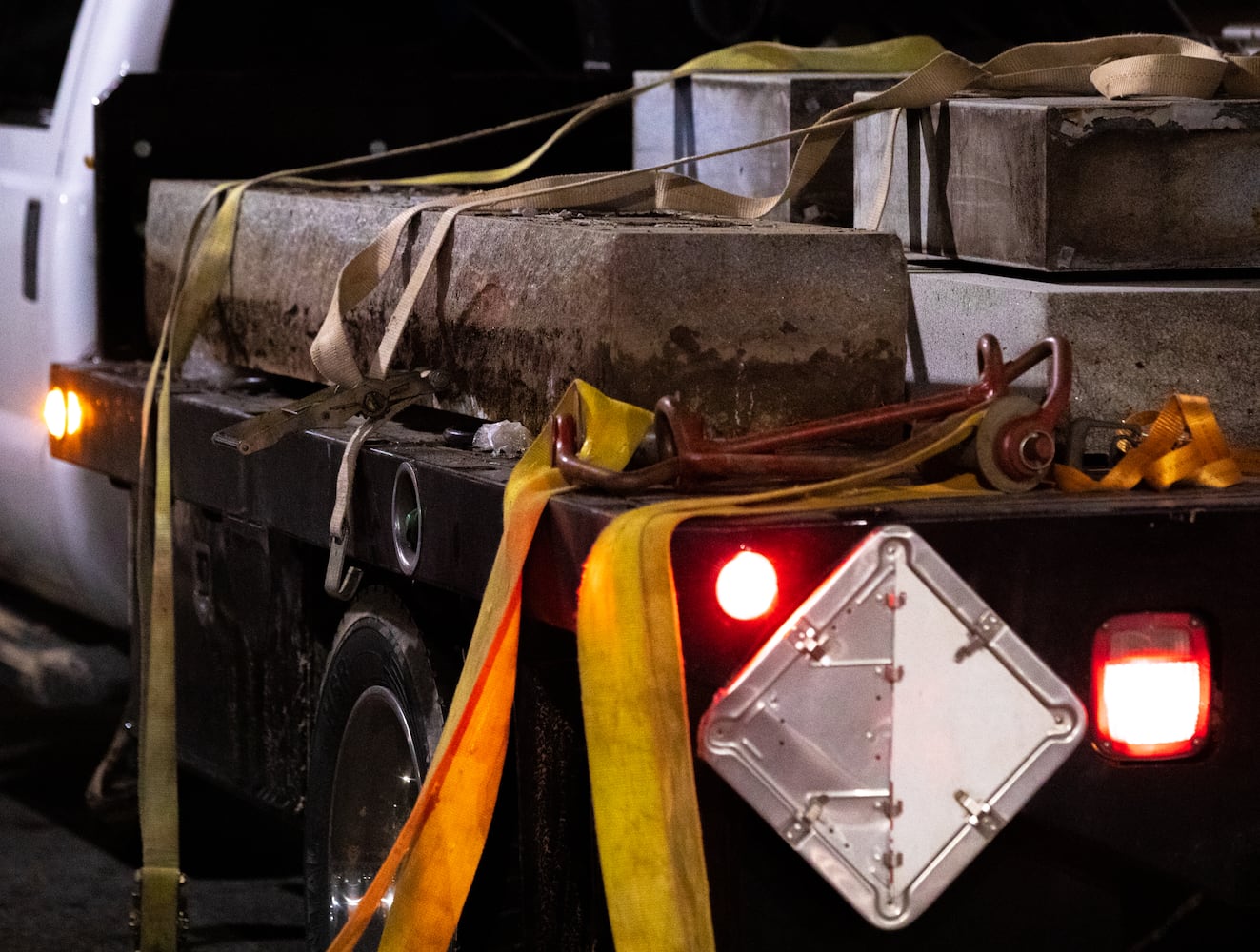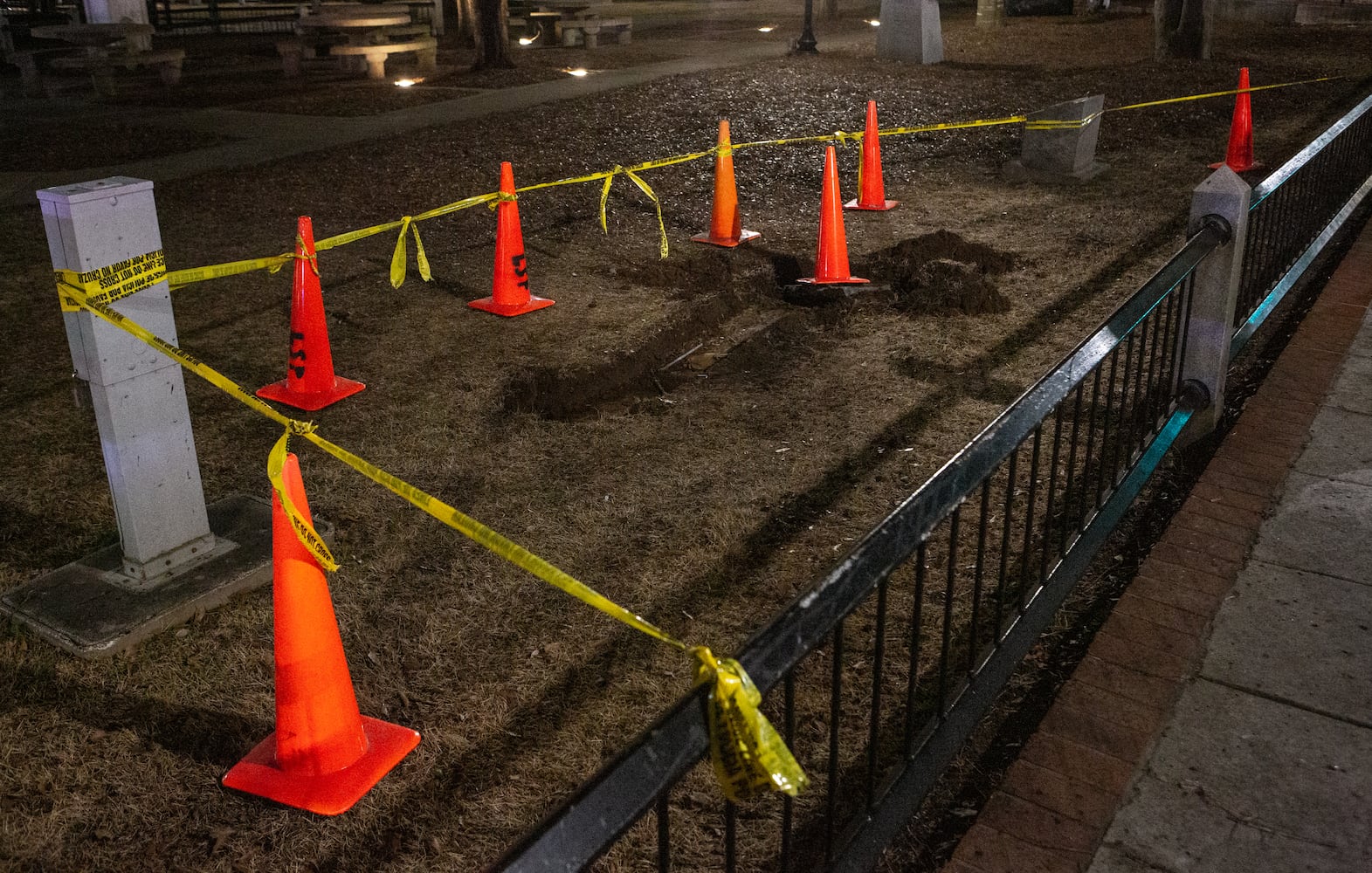At 10:01 p.m. Thursday night, the 28-year-old Confederate monument that stood in Lawrenceville’s downtown square lay in the back of a flatbed truck.
The face-down granite slabs were secured by yellow straps as the truck drove west, down Pike Street. Four police cars followed, taking the statue to an undisclosed location, where it will be held while the courts decide its fate.
“There it goes,” said Paul Runnels, who jumped out of his car with his wife, Debbie, when they saw the statue being dismantled. The pair posed for pictures next to a cordoned-off hole in front of the historic Gwinnett County courthouse, where the monument had stood since 1993.
“I think it’s the right thing to do, I really do,” Runnels said.
Gwinnett County commissioners last month agreed to put the monument into storage for the duration of a legal challenge. While state law prohibits the removal or relocation of Confederate monuments, except “for the preservation, protection, and interpretation” of them, county commissioners agreed that two acts of vandalism threatened the monument’s safety.
They passed a resolution that said keeping it on the Lawrenceville square “may result in additional acts of vandalism and create a public safety concern for the City of Lawrenceville and Gwinnett County.”
Kirkland Carden, a county commissioner who campaigned on the monument’s removal, said watching the statue come down felt like progress. It took less than two hours to dismantle the roughly 5,800-pound granite monument and lift the pieces with a 50-ton crane.
“It will not remove 150 years of hatred and white supremacy, but it’s a damn good start,” Carden said. “This has no place in a modern day Gwinnett County.”
Mart Clamp, the owner of Clamp Sandblast, said the process “went perfectly.” The statue wasn’t damaged, he said.
“To me, this isn’t a right thing or a wrong thing,” he said of the statue’s removal. “It’s just the will of the people.”
For most of the sparse crowd Thursday night, it was the right thing.
The county didn’t announce when it was taking down the statue, but Trey Hooper, a history teacher, lives near the square. He walked past as part of the monument was being lifted. Hooper said he didn’t think a “country that seceded in a treasonous fashion” should be honored in a public space.
The Lawrenceville monument has an early Confederate flag etched into it, as well as a picture of a Confederate soldier and, among writing, bears the dates 1861-1865 and the notation “LEST WE FORGET.” It also has a quote from Winston Churchill.
Hooper said he thought soldiers’ lives could be respected and honored in other ways.
Goran Handac, who lives in Lawrenceville, marveled that the statue had been in the city just since 1993 — the same year he came to Gwinnett as a refugee from Bosnia.
Three times a day, he’s walked passed the monument with his wife and his dog Rambo, hardly noticing it. But he wondered if even the people the statue honored would question its appropriateness, if they were alive now.
“This is a sign of these times,” Handac said.
Joe Bath, commander of the Lawrenceville camp of the Sons of Confederate Veterans, said he wished the county had let the lawsuit run its course. His group raised the money to install the statue and paid to maintain it. Bath said he didn’t learn that the monument had been removed until Friday morning.
“These people, they have no concern for the law, no concern for humanity,” he said. “It’s funny how all of a sudden these things are hurtful. ...I never saw that monument as a threat to anything.”
One man, who identified himself as a member of the Sons of Confederate Veterans but wouldn’t give his name, called county leaders “a bunch of cowards” for taking the statue down.
“It means a lot to me,” said the man, who added that his two great-grandfathers served in the Civil War. “It breaks my heart.”
Rep. Shelly Hutchinson, D-Lawrenceville, said she almost cried when she turned the corner and saw the crane in place. There’s no monument to a man, Charles Hale, who was lynched on the square — making the presence of the Confederate monument even more galling, she said.
Hutchinson said the feeling she got watching the statue come down was indescribable. She called its removal the biggest victory in her two terms.
“I feel more like a Gwinnettian today than I did yesterday,” Hutchinson said. “It’s sweet on so many levels.”
She recorded video of the statue’s disassembly on her phone, singing under her breath: “Na na na na, na na na na, hey hey, goodbye.”
About the Author
The Latest
Featured
